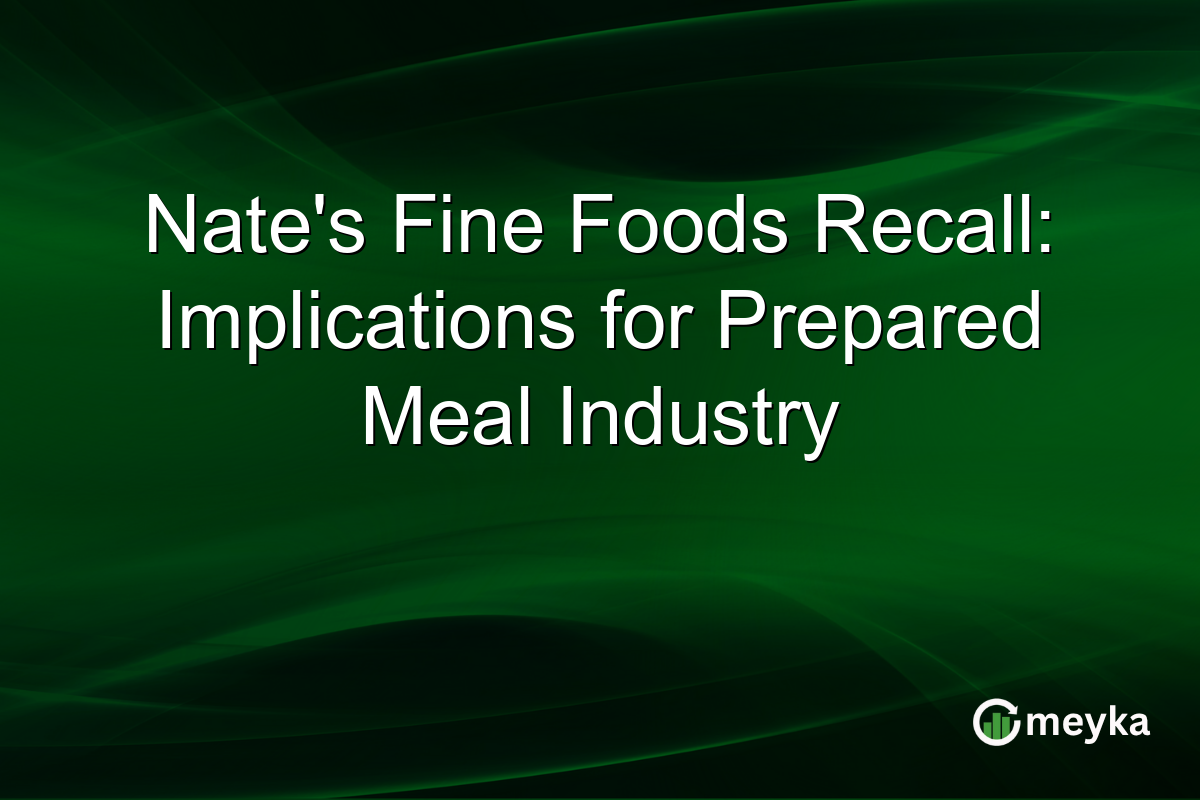Nate’s Fine Foods Recall: Implications for Prepared Meal Industry
Nate’s Fine Foods recently faced a significant setback with the recall of over 245,000 pounds of prepared pasta meals. This listeria pasta recall not only highlights the vulnerabilities in food safety protocols but also underscores the broader implications for the prepared meal industry. With rising consumer reliance on convenience foods, ensuring robust safety measures is paramount.
Continue Reading on Meyka
This article is available in full on our main platform. Get access to complete analysis, stock insights, and more.
Read Full Article →





